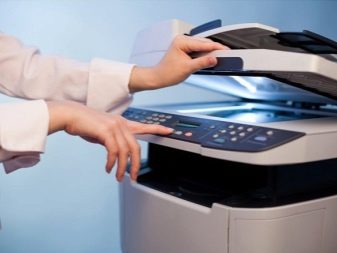Profession secretary

In the office of almost any modern company, the secretary occupies a special place. This is a specialist who helps to keep the organization organized and running. In fact, it is an intermediary between the manager, employees, partners and clients. As a rule, getting this position is not difficult - a higher education and extensive work experience are not always required. And you can build a good and interesting career in the future if you perform your duties efficiently and responsibly.


History of the profession
The secretary profession has been mentioned since the days of Ancient Rome. According to historians, such workers were hired by patricians and noble or simply rich citizens of the country. Men from the lower classes with a good education were employed as secretaries. At that time, the duties of such workers included office work, correspondence and often finances and even employer's secrets.
In Russia, the secretary position appeared in 1720 thanks to Peter I. Strict requirements were imposed on the profession - education, good knowledge of laws, understanding of all the subtleties and specifics. The position of personal secretary has been in demand since 1840 - many managers of various enterprises often need a personal assistant.
The requirements for the profession were high, and special skills were needed to get such a job. Then the first secretarial courses began to appear.


The modern profession of a secretary is often a reception and organizational work in the office - helping not only the manager, but colleagues and visitors.Today, the secretary is considered the face of the company, and by his or her appearance, visitors judge the solidity of the entire enterprise. Nowadays, this profession is considered predominantly female because of its specifics. During the development of the profession, several directions of the secretariat have been formed, depending on the specialization.
- Office secretary (office manager). Responsibilities are the distribution of phone calls, meeting guests, fulfilling instructions from the management and ensuring the stable functioning of the office (ordering stationery, water, etc.). To obtain a position, an employee does not need a special education. In the career ladder, this position is often the starting position.

- Secretary-assistant. The position is similar to that of an office manager, but more responsible and complex. Here, the responsibilities will be the preparation of design solutions, editing documents, drafting texts for the head's speeches at various events, as well as partial control of the work of the organization's employees. Obtaining such a position requires special education (courses, training center).

- Personal assistant to the manager. This position is considered honorable. Such an assistant needs to build relationships with management and create an atmosphere of trust. To perform duties, you will need knowledge of the specifics of the profession, the basics of office work, stress resistance and self-confidence. The work usually consists of solving organizational and administrative problems.

In addition to these professions, there are several specializations with narrow specificity.
- Clerk. An employee who organizes documentation, draws up invoices, registers incoming and outgoing correspondence, forms an archive.
- Secretary-translator. In addition to basic responsibilities, a high level of foreign language skills will be required. The employee takes part in negotiations with foreign partners.
- Judicial secretary. The employee serves in court, checks the attendance of people at meetings, keeps minutes of the hearing, draws up judicial acts and carries out various orders of the judge.
- Technical Secretary. To perform duties, you need to know the "blind" typing method, answer phone calls and be able to work with office equipment.


Additional characteristic features of the modern profession are:
- business correspondence;
- high speed of typing "blind" method - without looking at the keyboard and using all 10 fingers;
- the ability to use a variety of office equipment;
- the ability to organize documentation (correspondence, archive).
A complete list of required secretary skills is usually formed depending on the structure of the enterprise and the requirements of the manager.


Advantages and disadvantages
The advantages of the profession include the following:
- there is no physical activity;
- there is an opportunity to gain important communication skills and make useful connections;
- there is no need to have a specialty to get a job;
- work in comfortable conditions;
- in some cases, you can use office equipment for personal purposes (copier, scan);
- sometimes it is possible to combine study and work.


As in any other profession, the secretary position has its drawbacks:
- constant being in sight of the management;
- daily flawless appearance (especially important in large companies);
- similar tasks and routine work (often typical for small organizations);
- work is often stressful;
- fulfillment of personal orders of the authorities that are not related to work;
- there is rarely an opportunity for self-realization;
- the operating mode may be irregular.
The development perspective for the secretary is often questionable. Some managers are in no hurry to lose a good employee and transfer him to another position.Others are understanding and often promoted to responsible, hardworking and professional workers.

Job description
A document that is designed to regulate the rights and obligations of an employee is a job description, it is equally important for the secretary and for the management. It contains the rights and obligations of both parties to the employment agreement, which makes it possible to use it as a tool for effective coordination of production processes.
There is no single form of instruction, so you can compose it using a ready-made template, or develop your own document. When drafting the document, it is important to take into account that in each company secretaries perform different functions, despite the same basic work.

The job description should be drawn up taking into account the professional standard and include the following main sections.
- General Provisions.
- Functions.
- Job responsibilities.
- Rights.
- A responsibility.
In addition to the main responsibilities, it is allowed to introduce additional functions in the job description, taking into account specialization. So, the instructions of a clerk, technical secretary, military or scientific secretary will contain similar basic secretarial functions, but differ in specialized duties that will need to be indicated in the document.


Responsibilities
In the classical sense, the following functions can be attributed to the main unified duties of the secretary:
- ensures the administrative activities of the head;
- conducts business correspondence, including calls and emails;
- accepts and redistributes correspondence, prepares and sends replies to received letters;
- collects and processes the information necessary for the manager, provides office work;
- accepts documents from employees for further transfer to management for signature and review;
- prepares meetings, meetings and conferences, keeps their minutes;
- purchases stationery and other products necessary to ensure the smooth functioning of the office;
- solves organizational tasks for the reception of employees and visitors;
- performs other work related to the position held.


Additionally, duties may become:
- control over the execution of orders and orders;
- scanning and copying of documentation;
- cancellation or postponement of deadlines;
- booking tickets and hotel rooms;
- preparation of reports on travel expenses;
- preparation of drinks and treats for guests.
In the broadest sense of the word, the secretary does a great job of creating and promoting a positive reputation and maintaining the company's image.


Personal qualities
The secretary at work often and a lot has to communicate with different people, so a good specialist must meet the following requirements:
- neatness;
- accuracy;
- benevolence;
- a culture of speech;
- sociability;
- lack of bad habits.
Since the secretary is the “face” of the company, the employee's pleasant appearance is an essential criterion. It is important to note here that we are talking about a sense of style and presence of taste, and not about a model appearance. Women often become secretaries because they are considered to be more flexible, stress-resistant and able to create a cozy atmosphere in the office.


A responsibility
The specificity of secretarial work is to regularly help the manager in doing business. For this reason, such professional qualities are extremely important:
- a responsibility;
- punctuality;
- attentiveness;
- diligence;
- learnability;
- organization.
The presence of these business qualities will allow you to competently and clearly draw up documentation and daily routine. And the ability to connect with people will ensure effective interaction between management, team and clients.


Education
To get a job as a secretary, you often do not need a higher education; completed specialized courses are quite suitable. The knowledge gained in the field of psychology, speed reading and stenography will be useful. The basic knowledge of the secretary profession can be obtained in specialized colleges. Such training is available to those who graduated from the 9th or 11th grade of school, and will take 1-3 years, depending on the existing secondary education.
If the choice fell on a reputable company, then it is important to get a specialized education. For example, under the Ministry of Foreign Affairs of the Russian Federation there is a training center that trains secretaries. The center teaches students computer literacy, the basics of office work, business ethics and etiquette, and English. Since domestic universities do not offer training in secretarial work, candidates with diplomas in the field of philology, communication, psychology and other similar areas have an advantage. Some companies provide training for candidates they are ready to recruit.


Workplace
You can work as a secretary in a reputable organization, in a small business and in a government agency, for example, at a school or university. Today almost every leader needs secretaries or assistants. The position of the secretary is shrouded in various myths - some talk about starting an interesting career in this profession, while others argue that there is practically no promotion.
In fact, career advancement largely depends on personal qualities. Initiative and hard work will help you move to a higher position within the company, for example, first as an assistant manager, and then become a manager. Further development in the company will be in the hands of the specialist himself.



What is the average salary?
At the beginning of a career, it is difficult to count on a high salary. Employers usually offer workers without experience a salary of 15,000-20,000 rubles. depending on the region of residence. In large cities, wages are usually higher. The average salary of an experienced employee is 30,000-45,000 rubles. across Russia. Specialists of higher qualifications, for example, personal assistants to managers and assistants, earn 60,000-80000 rubles.
It is important to understand that the salary often depends not only on the position, but also on the organization or enterprise in which one would like to get a job. So, in a reputable company, the secretary's salary reaches 300,000 rubles.










